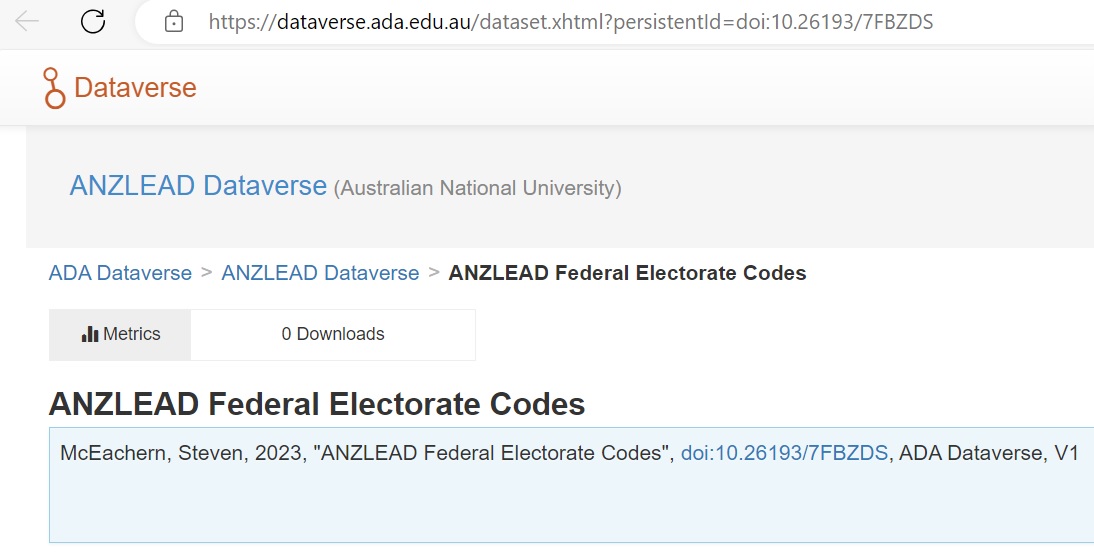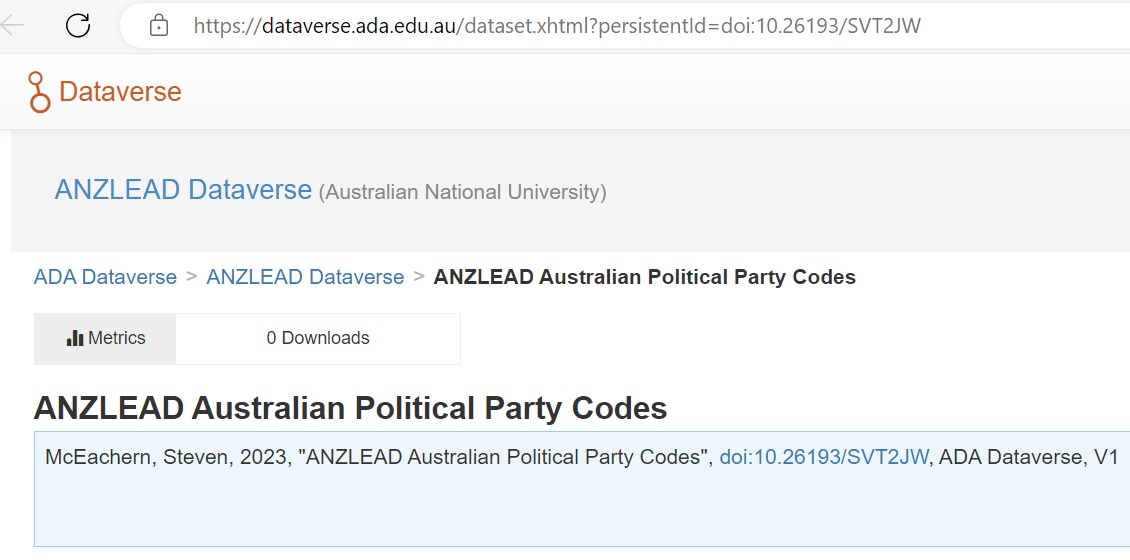
Vocabularies

ANZLEAD Federal Electorate Codes
This vocabulary includes a complete list of Australian federal electorates from 1901 to 2023, along with a set of standardised codes for use in the ANZLEAD project. The codes have been based on the Australian Election Commission codes used in the AEC Virtual Tally Room and Election Statistics datasets.
ANZLEAD Australian Political Party Codes
This vocabulary includes a list of Australian political parties from 1901 to 2023, and establishes standardised ANZLEAD identifier codes for use in harmonising political science research datasets across time and projects. The list of parties is drawn from three sources: the Australian Electoral Commission, the Australian Parliamentary Library and the Australian Parliamentary Candidates 1890-1999 study (Hughes, 1999)
What are controlled vocabularies?
A controlled vocabulary is “a standardized set of words and phrases used to organize and describe knowledge” (IUSSP, 2023). Controlled vocabularies are essential for sharing and reusing data, because they provide a standard set of codes and labels that ensure indepent datasets are directly comparible with one another. For example, occupations reported in censuses and surveys should be coded into a standard set of categories, such as the Australian and New Zealand Standard Classification of Occupations (ANZSCO), to remove alternative spellings and enable groupings by major and minor categories. Some controlled vocabularies are maintained by institutions, like the Australian Bureau of Statistics (ABS), while others are created by researchers and data custodians for individual projects (e.g., longitudinal surveys) or in collective repositories (e.g., a national collection of common demographic variables and recognised categories of those demographics). The ADA has developed a procedure for contributing novel controlled vocabularies developed in the process of harmonising social science data to the ARDC Research Vocabularies Australia (RVA).
Controlled vocabularies are important for showing differences as well as similarities in coding schemes and value labels. Differences in these variable-level metadata can prevent comparisons between independent datasets, even if from the same data series. Harmonizing data from multiple sources is a time-consuming task for researchers but controlled vocabularies can provide a useful target set of metadata to reconcile differences across data sources.
In Australia, RVA helps researchers find and use nationally relevant vocabularies, helping research organisations to publish, re-purpose, create and manage their own controlled vocabularies. The service enables management of new versions while retaining superseded versions as vocabularies are updated over time. RVA aims to describe “any controlled vocabularies commonly used by or relevant to Australian researchers”.

